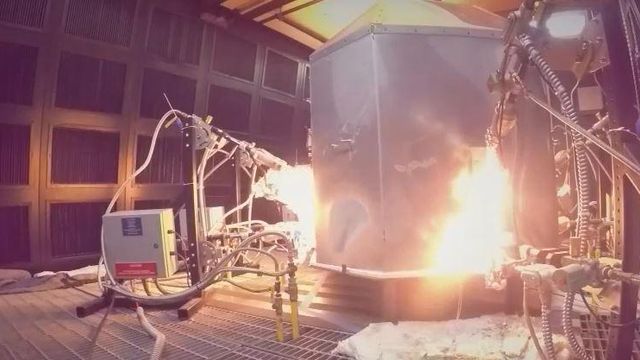NC State researches heat resistant shelters
Researchers are replicating extreme heat in a fire chamber on North Carolina State University's Centennial Campus, with the goal of making emergency shelters more heat and flame resistant, hoping their work can prevent future tragedies.
Posted — UpdatedThe wildfires burning throughout the South can reach blistering temperatures of more than 1,000 degrees. Researchers are replicating that heat in a fire chamber on North Carolina State University’s Centennial Campus, with the goal of making emergency shelters more heat and flame resistant, hoping their work can prevent future tragedies.
“We have thermocupals measuring inside there as they're totally encompassed in flames,” said John Morton-Aslanis, a research associate at NC State.
“So what we have to do is find materials light enough to be carried,” said NC State professor Roger Barker. “Not bulky, but also provide the flame blocking layer in a very intense exposure to fire.”
Researchers test new materials and combination of materials almost daily.
“We are measuring where the firefighter breathes 2 inches from the ground,” Morton-Aslanis said. “When he's in the shelter itself he's got his face as close to the ground as possible to breath the cool air.
They are looking for the right combination to withstand the flames and heat that come with unpredictable wildfires.
While the tests are not always success, researchers are determined to innovate.
“When you think about the firefighters do themselves and the situations they place themselves in , that's even more impressive,” Morton-Aslanis said “We're here to help them come up with a better way to survive.”
Once they're done testing the shelters in the lab, they'll move them outside for testing in controlled burns, which could happen sometime next year. The improved fire shelter will likely only add 30 seconds to a minute of extra protection.
• Credits
Copyright 2024 by Capitol Broadcasting Company. All rights reserved. This material may not be published, broadcast, rewritten or redistributed.





